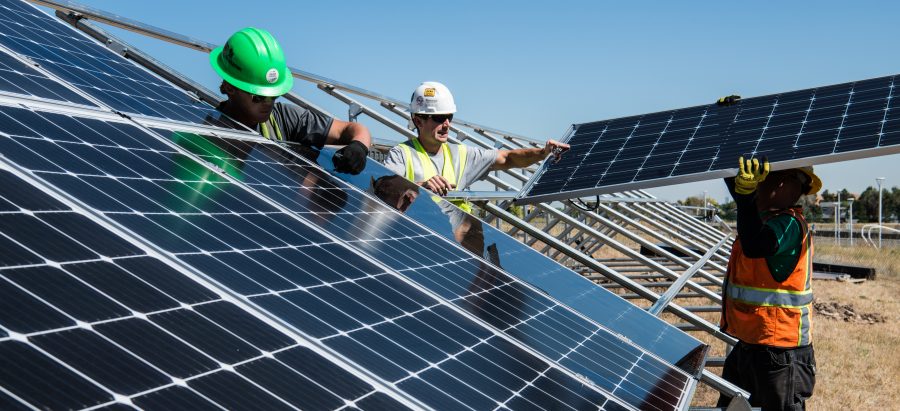Investigating Carbon Neutral Casinos
Caption: Keeping Las Vegas illuminated is no small feat, but investing in renewable energy could help the city’s carbon footprint enormously.
Carbon neutrality is becoming increasingly important. Over recent years our environment has been showing us that it needs our help. Extreme weather patterns, the steady rise in global temperatures, and increasing levels of pollution all point to a planet in crisis. Thankfully many of us are beginning to take notice and make changes. One industry that is under-explored, but possibly on the brink of achieving neutrality is the casino industry. Here are some of the strides this industry is making towards cutting its carbon footprint.
What is Carbon Neutrality?
Although there are many facets to this issue, the main goal behind becoming carbon neutral is to avoid all carbon created from human activities. Burning fuel to run cars, buses, and aeroplanes creates carbon. Heating our homes creates carbon. Transporting food creates carbon too, but all of these processes are, for the most part, necessary. For some companies it is possible to switch to greener, renewable forms of energy, such as solar. They can also pilot carpooling schemes, or encourage the use of public transport over personal vehicles. Both of these methods remove carbon at the source.
However, if companies can’t remove carbon at the source then all is not lost. Companies can also achieve carbon neutrality by finding ways to offset carbon. This could include things like planting more trees, which will convert the harmful CO2 into oxygen and trapped, safe, carbon. There are plenty of reputable companies who accept money from businesses and use it to plant trees, or invest in carbon trapping technology. All of these methods of achieving carbon neutrality will create a healthier planet.
Changing to Renewable Energy

Caption: Installing solar panels o the rooftops of casinos is proving a huge boost to their carbon neutral goals.
One of the most popular ways for casinos to negate some of their carbon footprint is through the use of solar power. The largest polluting casinos also tend to be the largest, meaning that they often have a lot of free roof space. Several of the major Las Vegas casinos have invested in solar panels to enable them to produce their own clean, green energy. When you consider the sheer amount of electricity required to power thousands of slot machines, light hundreds of crystal chandeliers and even keep bright neon signs lit for 24 hours a day, this contribution to their goal of carbon neutrality is a huge one.
Moving the Business Online
Of course, one of the most effective ways of cutting a casino’s carbon footprint is by taking it online. Online casino games are easy to access, and most importantly, environmentally friendly. The experience encapsulates the real land-based casinos feeling, since it includes some of the oldest games such as the five-century-old game of blackjack along with the newest ones like live roulette or daily jackpots. The carbon output of a casino building is removed and instead the only emissions that need to be focused on are those being created by the people responsible for keeping the website running.
Tackling Food Waste
One of the surprising elements of running a casino that many don’t consider is the wasting of food. Particularly for resort-casinos, a buffet is a popular way of feeding guests, but it can also generate a great deal of food waste. As food decomposes it produces methane, a greenhouse gas that is far more dangerous than CO2 for the atmosphere. Some of the largest resort-casinos have taken this issue seriously and have begun to integrate ways to deal with (and where possible avoid) food waste in their casinos. MGM have blazed the trail, looking for ways to distribute leftover food to the homeless and the hungry across the cities where their casinos are based. When food isn’t fit to be re-distributed, they are running composting schemes to create soil to grow their own micro-herbs in. Other leftover vegetable matter gets sent to farms to be fed to animals and leftover cooking oil is turned into biofuel to run vehicles more efficiently. With the huge number of casinos churning out more food than is necessary, the less obvious steps, such as re-imagining uses for food waste could be the difference between an industry that moves with the times, and one that is stuck in the carbon-positive age.
Share It on :





